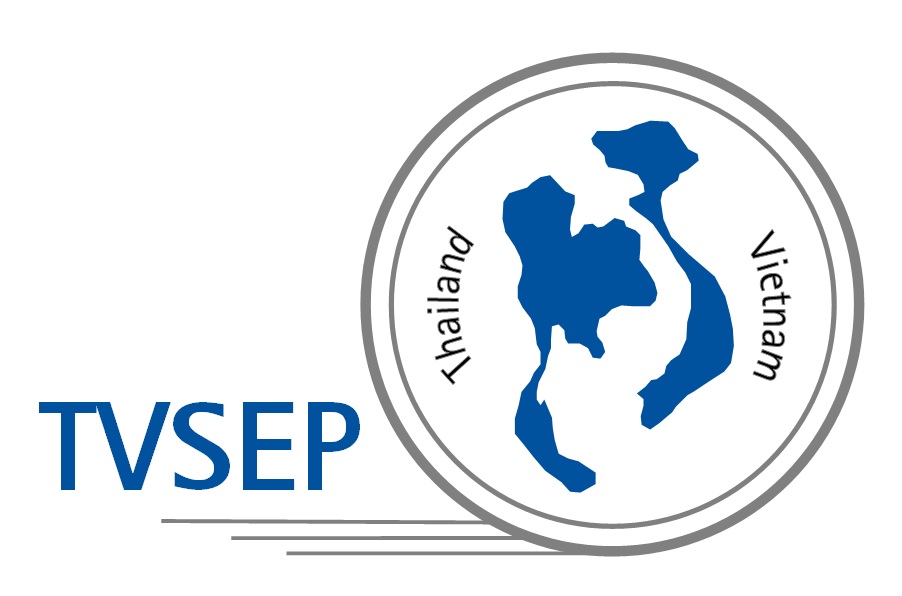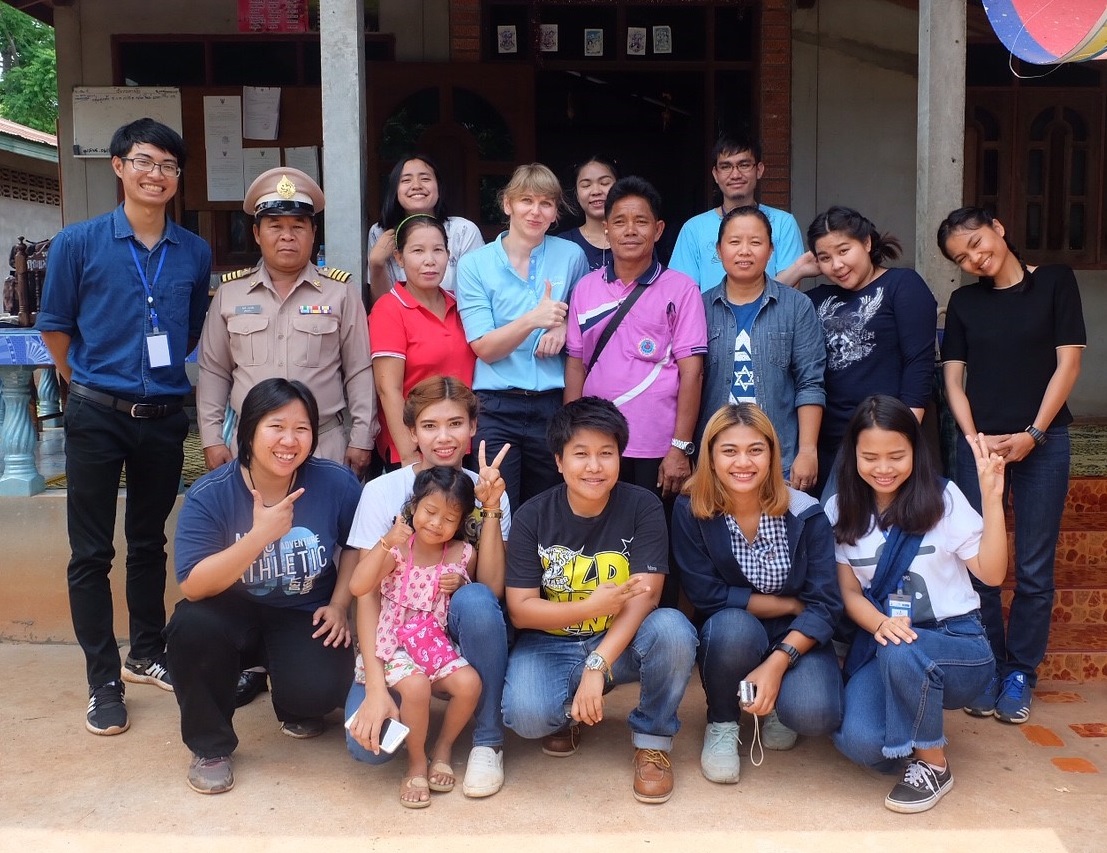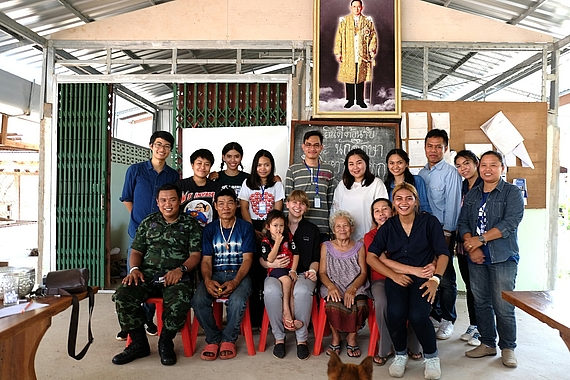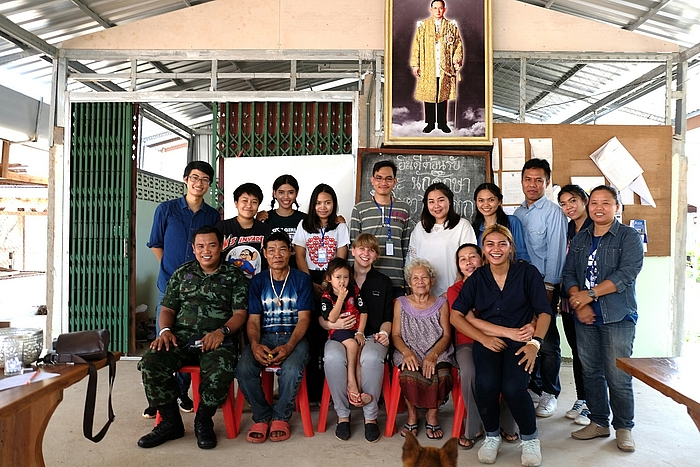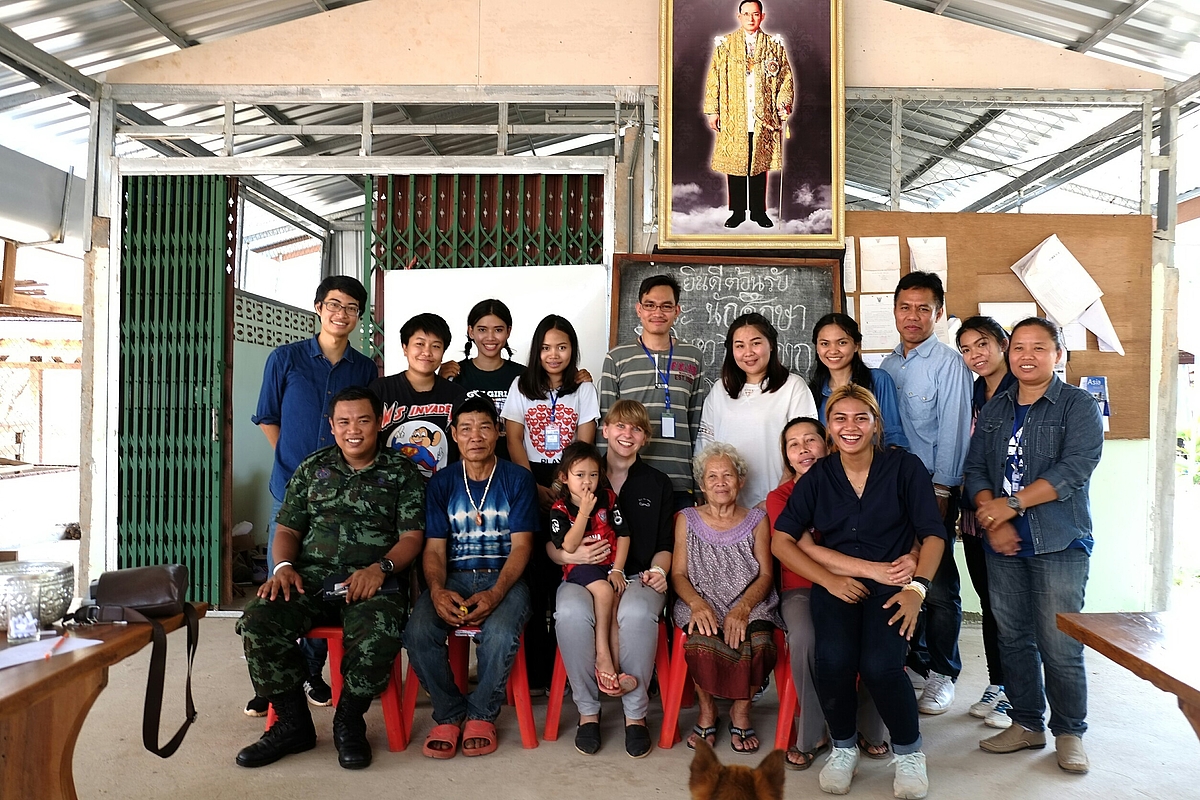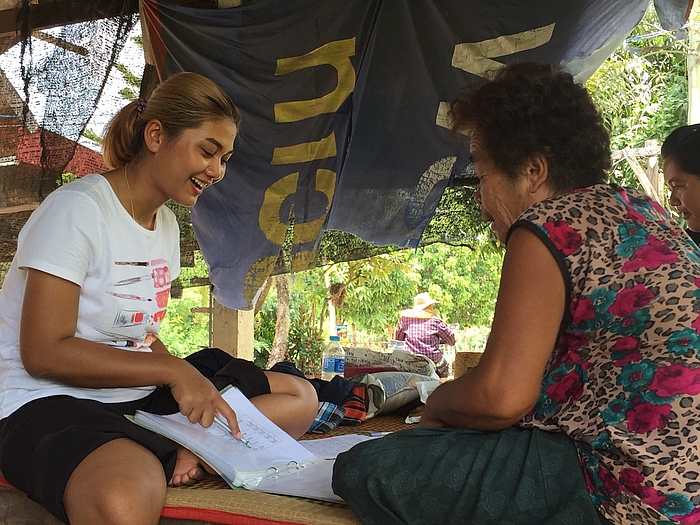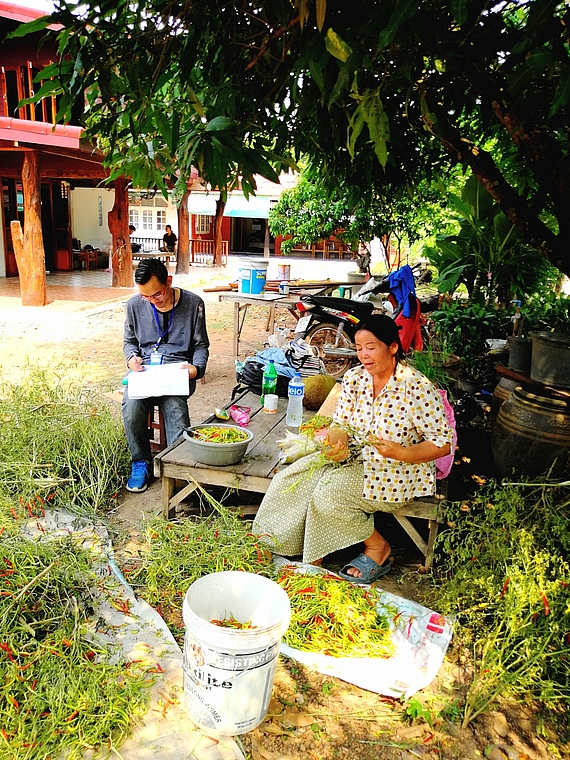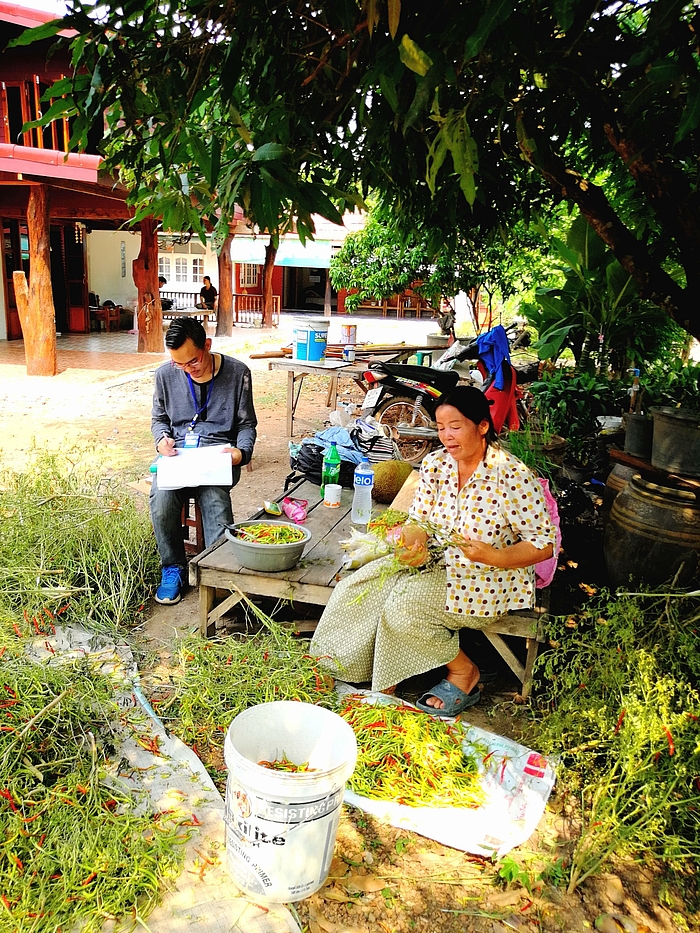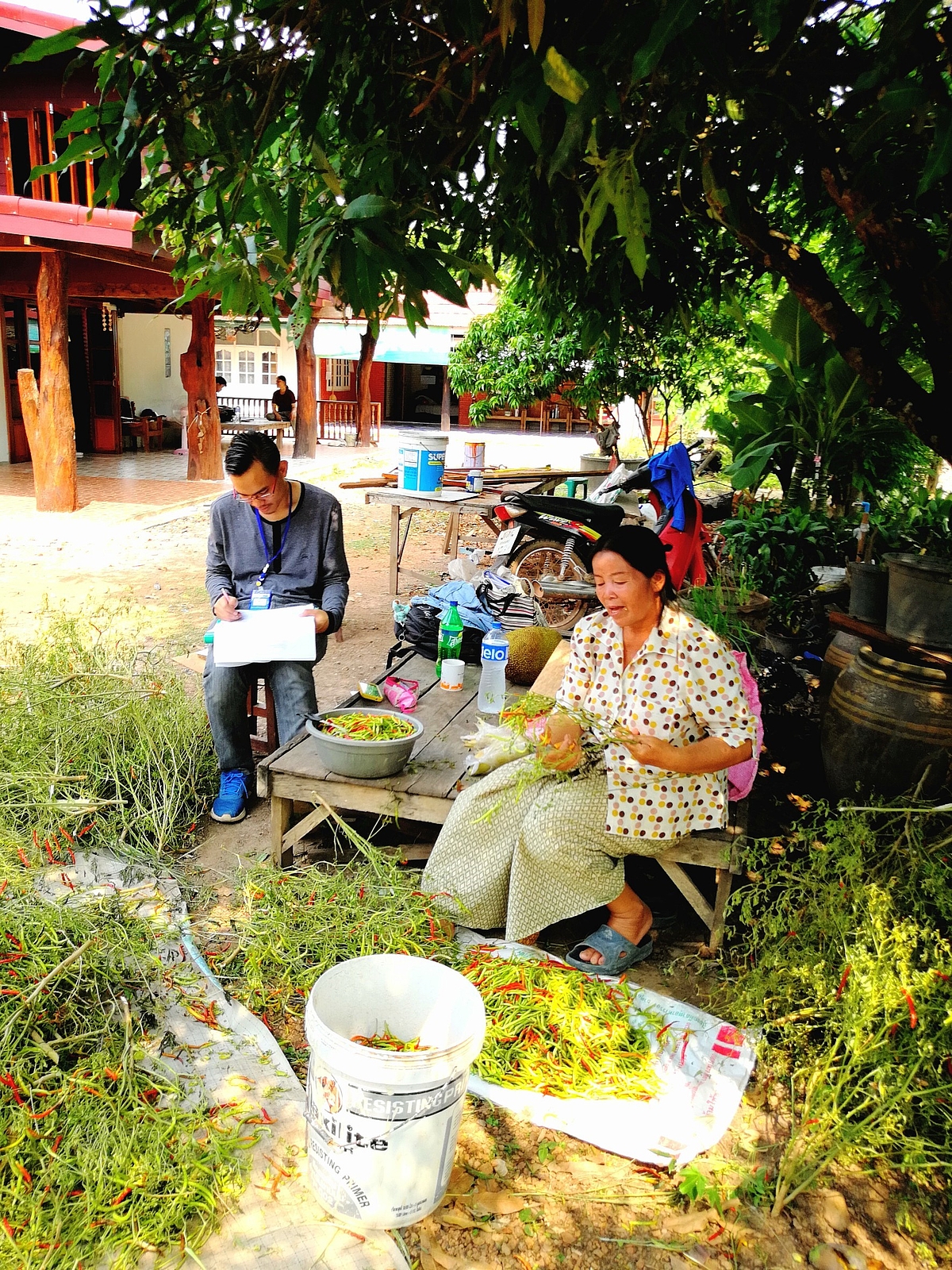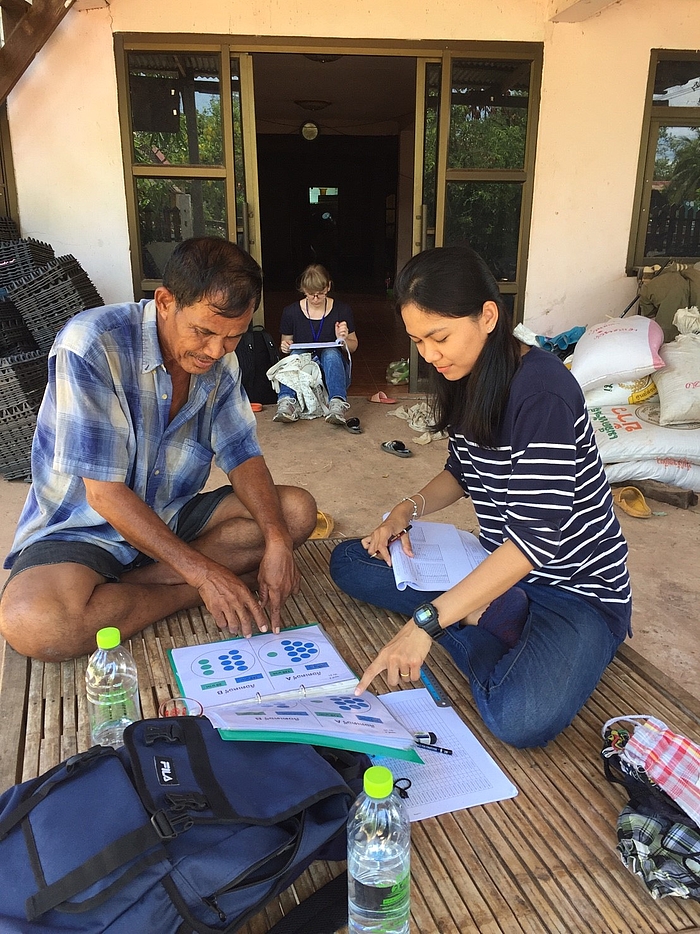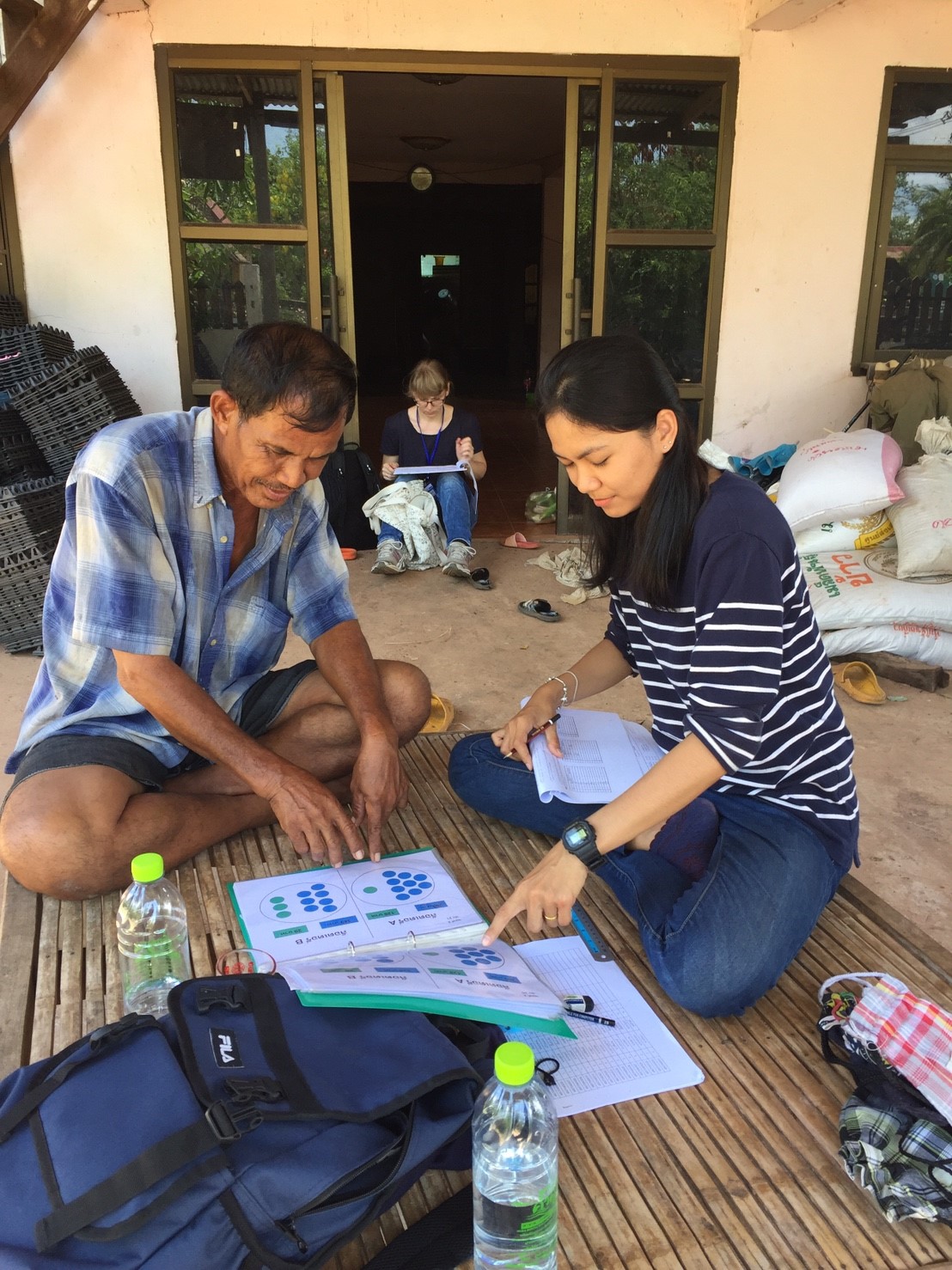Add-on project: Long-term effects of risk and time preferences on households' welfare in emerging market economies
Project report
Sabine Liebenehm
An add-on study on social networks, risk and time behavior was conducted from March to May 2017 selecting a sub-sample of the TVSEP project sample from Nakhon Phanom province in Thailand.
Economic theory suggests that risk aversion and time discounting should decline in wealth. As a conclusion, poorer households, especially in developing countries, are considered to be more risk averse and more impatient than wealthier households, which in turn lead the poorer to take management decisions that could perpetuate their lives in poverty. However, our understanding of the complex and dynamic interactions between risk and time preferences, risk management and poverty, especially in different dimensions of well-being, is still quite limited, because of data limitations and highly compartmentalized research methods.
This research project applies a holistic approach, where the dynamic interrelations between risk and time preferences, risk management and the multiple dimensions of poverty will be disentangled in order to derive longer-term prospects for sustainable development of rural households in transition economies.
The emerging market economy of Thailand, which has seen a considerable decline in poverty but remains strongly vulnerable to adverse risks, is a suitable stage to effectively investigate the dynamic interactions between preferences, risk management and poverty.
Objectives
The proposed research investigates these interactions by differentiating between two levels of risk management strategies, i.e. (i) risk management at the individual level such as diversifying income sources, and (ii) risk management at the group level such as sharing risks with other households in social networks. The specific research objectives are to:
- improve our understanding of the link between individual preferences and risk management strategies
- assess the multidimensional poverty impacts of risk management strategies in terms of malnutrition, poor health, poor education both at the individual household level, and at the group level; and
- investigate the causal relationship between poverty and risk and time preferences.
The empirical foundations for the research are built upon the existing long-term panel data set of approximately 2000 households from rural Thailand over 6 waves from 2007 to 2016 collected within the scope of the Thailand Vietnam Socio Economic Panel project. The rich database contains detailed information about socio-economic characteristics of households and their members (including health and education), information about income-generating activities, expenditures and assets, information about perceived shocks in the past and expected risks in the future, corresponding shock coping and risk mitigating strategies and survey-based measures of risk preferences and simple decision-tasks.
The existing data base was recently complemented by lab-in-the-field experiments to elicit risk and time preferences and by collecting information on households’ social networks using a randomly selected sub-sample of the long-term TVSEP project sample in Nakhon Phanom Province. TVSEP villages in Nakhon Phanom were classified as “risk exposed” or “less risk exposed” using historical rainfall data. Finally, 5 villages from each risk exposure category got randomly selected to conduct the complementary survey on social networks and risk and time behavior.
